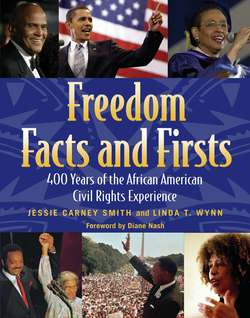Читать книгу Freedom Facts and Firsts - Jessie Carney Smith - Страница 103
На сайте Литреса книга снята с продажи.
Sanitation Workers’ Strike (1968)
ОглавлениеThe 1968 strike of sanitation workers in Memphis will forever be remembered in the context of the assassination of Martin Luther King Jr., who had come to the city in support of these workers. After the King assassination on April 4, his widow, Coretta Scott King, courageously led another protest march in Memphis on April 8, one day before the funeral for her husband in Atlanta. National and union negotiators from the U.S. Department of Labor and the American Federation of State, County, and Municipal Employees (AFSCME) finally reached agreement with Memphis officials to end the strike one week later. African American sanitation workers in Memphis had endured racial discrimination in pay, staffing patterns, and other negative employment conditions for a number of years. Problems escalated after two black workers, Echol Cole and Robert Walker, were crushed to death when a garbage truck malfunctioned on February 1. Newly elected Mayor Henry Loeb had refused to replace worn-out equipment or pay overtime, and workers were forced to supplement their substandard wages with welfare and food stamps. The deaths of the two men galvanized other workers to press for fair treatment, but city officials still refused to make changes, so over 1,000 sanitation workers went on strike as of February 12.
Problems escalated after two black workers, Echol Cole and Robert Walker, were crushed to death when a garbage truck malfunctioned.
AFSCME officials met with Loeb, who refused to recognize the union and issued a back-to-work order effective February 15. After Memphis ministers also met unsuccessfully with the mayor, the NAACP endorsed the strike. Demonstrations continued into March, and the Reverend James Lawson, veteran activist and associate of King, helped create the Community on the Move for Equality (COME) to continue protests in support of the sanitation workers. King arrived on March 18, where he addressed over 25,000 strike supporters; he planned to return on March 22 to lead a city-wide protest. A snowstorm caused organizers to reschedule the event for March 28. The march began peacefully but ended after some demonstrators became violent. Memphis police attacked retreating demonstrators with clubs and tear gas, and a black teenager was shot and killed by a police officer. Loeb declared martial law and brought in the National Guard, but striking workers continued their protest with signs reading, “I Am a Man.”
King made his second and final trip to the city on April 3. At the evening rally in the Mason Temple Church of God in Christ, King delivered his final speech, “I’ve Been to the Mountaintop.” The assassination of King at the Lorraine Motel on April 4 sparked violence nationwide. Lawson and other leaders attempted to calm the local African American community, but Loeb imposed a 7 P.M. curfew and added state police units to the National Guard soldiers already in the city. After the April 8 march led by Coretta Scott King and the intervention of U.S. Undersecretary of Labor James Reynolds, who had been sent to Memphis by President Lyndon B. Johnson, a resolution of the strike was finally reached on April 16, 1968.
Fletcher F. Moon
